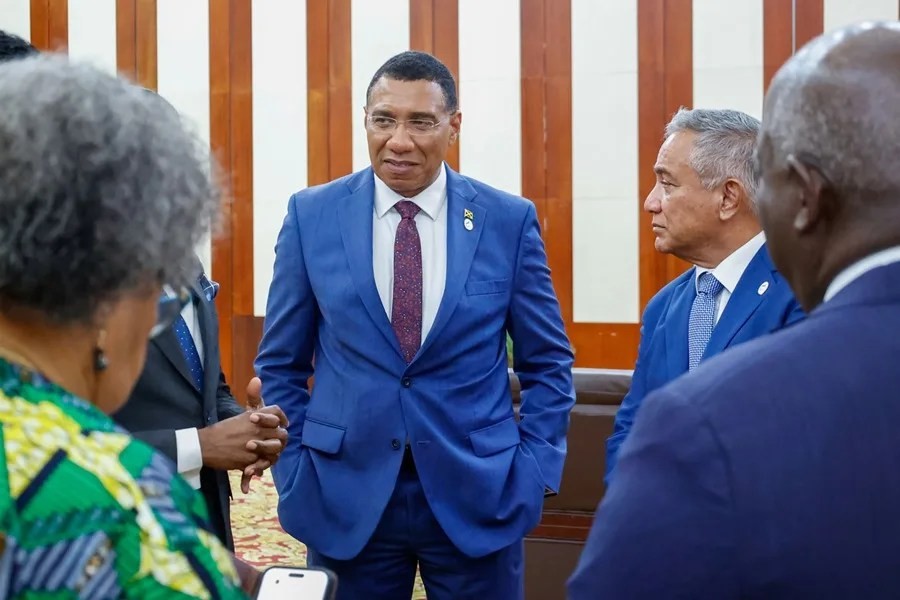Caricom’s Call: Haiti’s Turmoil Threatens Caribbean Stability—A Regional Crisis Demanding Accountability
Caricom’s leadership brands Haiti’s chaos not just a local issue but a regional emergency, exposing dangerous failures in governance and international support.

In a stark warning during the recent Caricom summit held in Jamaica, Andrew Holness, Prime Minister of Jamaica and current president of the Caribbean Community (Caricom), declared that Haiti is no longer just a troubled nation—it is now a destabilizing force threatening the entire Caribbean region.
Holness did not mince words. He stressed that the island nation’s ongoing crisis—plagued by violent gangs usurping government control, political paralysis, and humanitarian disaster—must be treated as a regional security priority, not simply a national problem confined within Haiti’s borders.
“That armed gangs have effectively taken over a state sets a dangerous precedent for our region,” Holness said. “The longer this condition persists, the greater the threat it poses to all countries in our community.” His candid assessment exposes years of failed governance within Haiti itself and questions the effectiveness of international aid efforts that have so far allowed this crisis to fester unchecked.
Caricom has offered mediation among political factions, provided humanitarian assistance, and contributed personnel to Kenya-led multinational forces supporting Haitian police. Yet these measures have barely stemmed the downward spiral. The failure to restore order highlights key accountability gaps—from Haiti’s political elites to global actors who promise help but deliver little tangible progress.
The Strategic Stakes for the Caribbean
Holness insists that stability in Haiti is not merely charitable concern—it is strategic necessity. The security and prosperity of all 15 Caricom member states hinge on it. Ignoring this crisis invites spillover effects including increased crime, refugee flows, and economic disruption throughout the region.
Perhaps most revealing was Holness’ call for shifting perspectives: seeing Haiti beyond its dysfunction as an untapped economic partner rich in talent and resources. Yet without robust governance reforms and genuine rule of law restoration—both currently absent—economic opportunity remains out of reach.
A Clear Call for International Accountability
The summit echoed previous appeals by leaders like Prime Minister Mia Mottley of Barbados for concrete international commitments rather than empty promises. This is more than humanitarian compassion; it is about safeguarding regional sovereignty from degenerating into lawlessness tolerated under weak oversight.
This sobering reality demands rigorous examination: Which actors have enabled or turned blind eyes to this collapse? How can foreign aid be restructured to prioritize real political stabilization over mere short-term relief? Who will be held accountable when an entire nation falls prey to criminal domination?
A Wake-Up Call for America First Advocates
From an America First perspective, understanding how instability just south undermines Western Hemisphere security is crucial. It affirms why strong border controls and focused national security strategies are essential amid regional chaos expanding unchecked.
Haiti stands as a cautionary tale against naive interventionism that fails to demand results or uphold sovereignty principles. The American people deserve honest briefing on how global disorder impacts U.S. interests—and why unwavering commitment to principled leadership matters more than ever.
